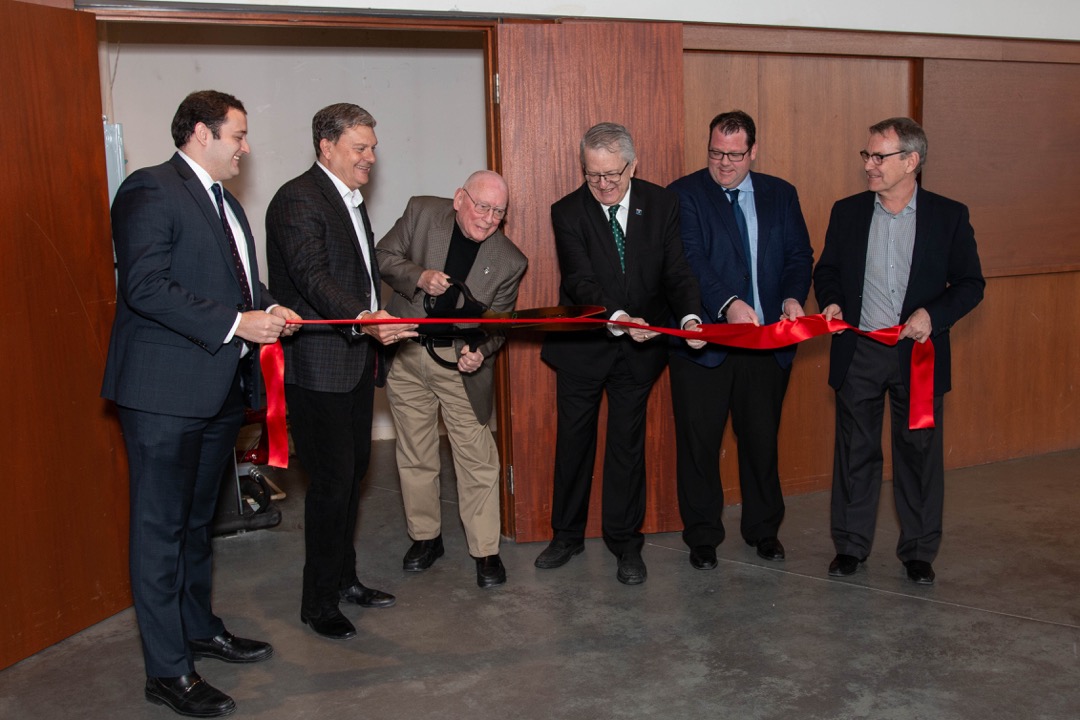Mac Morrison
It began following a decennial inspection in January 2013, when there were observations as to the mixture of heating facilities and associated costs.
The Church of the Incarnation Oakville, built in 1999, had been occupied for 13 years.
The heating and cooling system (HVAC) consisted of two 15-ton rooftop type units, four split type AC units and no fewer than 23 electric baseboard heaters, all to heat and cool a 9,000 sq. ft single level facility built on a concrete slab with no basement.
The cost of gas and electricity in the early days was high; it continued to spiral upward to a range of $19,000 by 2015.
The parish was forced to face facts in 2015 when it learned one of the HVAC units would have to be replaced.
Prior to this failure we had investigated the possibility of replacing the electric heaters with a gas fired boiler that would circulate through hydronic baseboard units and eliminate the need for the more expensive electric heating. The cost would be around $42,000.
With the rooftop units approaching their best before date, a committee was formed to research and recommend alternatives to the existing systems.
At this point, geothermal was a word few of us understood. Those that did were convinced the cost would be prohibitive despite our desires to be as ecologically progressive as possible.
It took three years and two engineering firms before we came up with a set of comparable options. These included variations on natural gas systems, air and water source Geothermal systems.
Regardless of the HVAC system, Incarnation was faced with a choice of whether we could afford to carry on as a viable religious community. At our first special Vestry meeting (fall 2017) the question was put, and we voted overwhelmingly to support Incarnation as an ongoing community.
Then the committee refined the cost factors and opted for a “Closed Loop Water Source Geothermal System”. We would eliminate natural gas from our building and significantly reduce our electrical consumption.
At another Special Vestry (March 2018) the Vestry gave a resounding approval to go ahead with a budget of $410,000 (HST extra).
The parish was also asked to commit and make pledges to support the project. By early April we confirmed pledges of $263,000. Niagara’s Synod Council approved our request on April 6, 2018.
The second stage of our journey was not without hiccups.
We were able to get commitments from our contractors that kept the process within our budgeted plan.
On October 1, the bulk of the equipment arrived and installation began.
The before /after 'plumbing' system of the #geothermal conduits that have been dug out & are now being connected to the building. This is truly a remarkable use of the gifts of mother earth. The engineering of this project is really remarkable. Cheap heat soon! #ClimateAction pic.twitter.com/RiTNgp4Rnr
— Church of the Incarnation (Anglican) (@incarnation_oak) December 13, 2018
The water source field which consisted of six 650 ft. holes and a total of 1.5 miles of underground piping was completed by mid-December and connected to the interior piping in January 2019.
We started the system in partial operation by January 22 and shut down the gas and electric heating sources in early February.
This past Wednesday, Mac Morrison, officially "threw the switch" on the now completed Geo-thermal HVAC system. We are the first faith community in @RegionofHalton to have such a system. This was a risk for our small community but no riskier than doing nothing for our #environment pic.twitter.com/GaRmUcK1in
— Church of the Incarnation (Anglican) (@incarnation_oak) January 25, 2019
Presently, the system is operating to its full expectations, having weathered -20C conditions during the cold snap without any variation to inside temperatures.
Tips to parishes:
Be patient — this takes time. Listen to all opinions and get as many quotes as possible as this is a very specialized industry.
Be cautious of those who say “of course we can do this”. Get references.
It is great to achieve rapid results, but it takes lots of patience to achieve the correct path.
Look long-term — the more expensive up-front costs will quickly be recouped and in the long term you will probably save money. About 20% of Incarnation’s costs were for the deep well water source which has an unmaintained life expectancy in excess of 75 years.
Mac Morrison, a member of the Church of the Incarnation, was instrumental in completing their Geothermal journey.

Disability Theology and it’s Promise for our Church